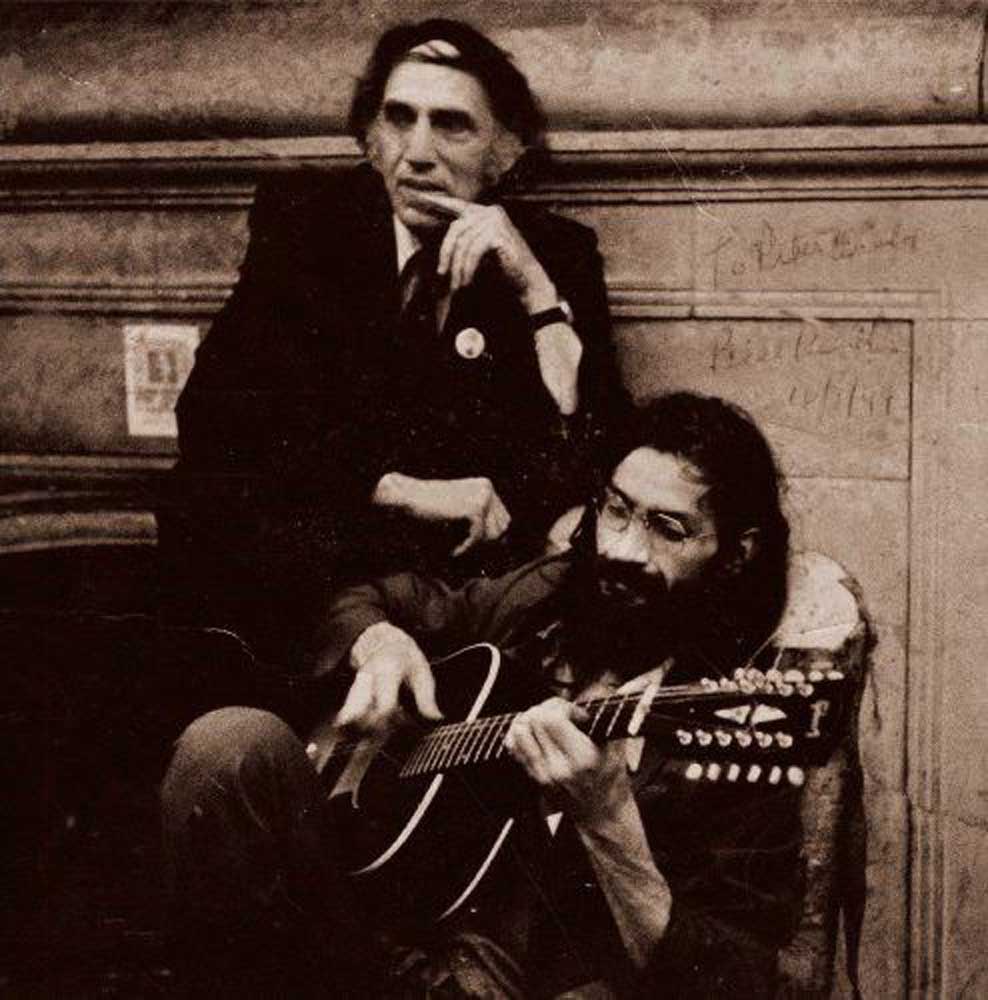Music Reviews
Published 12:00 am Friday, January 10, 2014

- Peter Walker, "Has Anybody Seen Our Freedoms?"
Xiu Xiu
“NINA”
Trending
Graveface Records
Mainstream vocal-competition programs from “American Idol” to “The Voice” regularly host contestants these days singing Nina Simone’s haughtiest blues. And it takes someone with Simone-level confrontational crankiness to attempt her most stirring material.
Xiu Xiu’s Jamie Stewart fits that bill, a 21st-century avatar of noise-pop and experimentalism whose voice and music are of a drama comparable to Simone’s. Stewart brings in several avant-jazz heavies on “Nina,” mightily benefiting his voice and choice of Simone songs. Musicians on this CD include drummer/arranger Ches Smith, accordionist Andrea Parkins, saxophonist Tim Berne, bassist Tony Malaby and guitarist Mary Halvorson.
The mixed bag of mood musics find Xiu Xiu touching on film-noirish sleaze (“Don’t Explain”), passionate pleadings (“Just Say I Love Him”), jerky Afro-funk (“See Line Woman”), to soft, even faithful balladry (“Wild is the Wind”). Xiu Xiu is best when it channels the complex Simone spirit. Stewart’s voice is inconsolable and majestic in the blistering “Don’t Smoke in Bed.” The angst of “Four Women” and the soft, agonizing beauty of “The Other Woman,” are bittersweet icing on the cake.
ON TOUR: Feb. 25 — Doug Fir Lounge, Portland; www.ticketfly.com or 877-435-9849.
— A.D. Amorosi,
Trending
The Philadelphia Inquirer
Moon Honey
“HAND-PAINTED DREAM PHOTOGRAPHS”
Self-released
Whirlwind virtuosity, extremes of delicacy and impact, melodies that leap all over the place, suite-like structures, cryptic lyrics based on literary conceits — all the hallmarks of progressive rock are robustly in place on “Hand-Painted Dream Photographs,” the first full-length album by Moon Honey, a musically hyperactive band from Baton Rouge, La. , whose songs segue amid folky-baroque intricacy; power-trio stomps; odd-meter excursions; and pealing, crystalline multiple-guitar constructions. Moon Honey’s repertory could plausibly be collaborations among Joanna Newsom, the Mars Volta and Grizzly Bear.
Each song is an odyssey, like “The Two Fridas,” which, in its six minutes, moves through pageant, barrage, rush, reconsideration, private reflection, desperate waltz and wailing affirmation, not to mention lyrics that tease at possibilities of meaning.
The album ends with a pair of songs called “The Lovers” (I and II).Moon Honey often describes its music as “psychedelic,” but its songs aren’t the psychedelia of amorphous, open-ended jamming. They are fully composed from end to end, meticulously plotted voyages through chaotic states of mind. It’s strenuous music for both players and listeners; the tempestuous ride is its own reward.
— Jon Pareles, The New York Times
Peter Walker
“HAS ANYBODY SEEN OUR FREEDOMS?”
Delmore Recording Society
When John Fahey’s folkloric but futuristic Mississippi Delta-to-the-Ganges acoustic guitar style was rediscovered in the 1990s, the second-wave enthusiasts scattered his ideas far and wide. But recognition for some of Fahey’s fellow travelers, including Peter Walker, came later.
Walker is still around; he retreated from recording for four decades, between 1968 and 2008. He’d already studied Indian music at the beginning, and during his long interim went deep into Flamenco, learning from teachers in Andalusia. Perhaps more than his better-known peers, he was interested in doings outside of his own art, plunging into the antiwar movement and the study of traditional musical languages.
In the liner notes, Walker calls “Has Anybody Seen Our Freedoms?” his “requiem for the ‘60s.” It’s rough, passionate and often raga-like, with surging and falling tempos, drone notes at the bottom, scale melodies on top, fast fingerpicking patterns clumping together. In a flat, conversational voice, Walker sings words as melody, doubling them with steel-string acoustic guitar lines, building a flowing stream-of-consciousness narrative about art and love and constant travel, with words coming out in clipped, jagged bursts.
This is a solitary, even recessive kind of music, but very special. You get the sense it’s been intensely, almost ritually practiced, with text and guitar filigree woven together into a kind of epic poem meant mostly for the performer.
— Ben Ratliff, The New York Times








